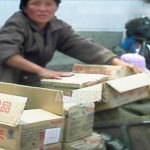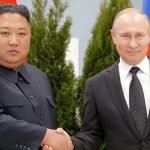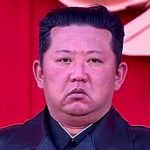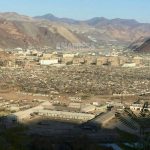
On February 27, Kim Jong-un and Donald Trump met in Hanoi for a second round of talks. While the U.S. aimed to set the terms, speed, and extent of North Korean denuclearization, North Korea sought an end to the sanctions imposed by the UN Security Council. Despite North Korean boasts that the country’s philosophy of self-reliance was holding up against the sanctions, the country’s economy was truly crippled.
According to ASIAPRESS reports from inside North Korea, it is not only the government and military that have been hit hard by the effects of the sanctions. From the poorest citizens to the wealthiest Pyongyang elite, life under the sanctions has been much more difficult for all levels of society. (ISHIMARU Jiro / ASIAPRESS)
"Trump is a fraud"
ASIAPRESS relies on a team of about 10 reporting partners living inside North Korea. One of the group, a man in his 40’s, called on February 16, the anniversary of Kim Jong-il’s birthday.
“We were very happy about the meeting with Trump last June. We thought that the sanctions would be lifted and that life would get better. But nothing has changed. The people here are angry because, while we have kept our promises to the United States as best as we can, Trump has broken his promises- condemning us to carry on like this. Party officials explain to us what happened at the summit this way.”
The reporting partner lives near the Chinese border in Musan County, North Hamkyung Province. The county’s main industry, iron ore production, came to a halt late last year when all exports to China were blocked. In accordance with the UN sanctions, China had banned imports of iron ore from North Korea.
Despite this, the partner says that, due partly to government propaganda, many residents blame the U.S. for their worsening lifestyles.
In January, a reporting partner living in another region of North Korea said, “Kim Jong-un needs to give up the nuclear weapons. Then the sanctions can soon be lifted. Nevertheless, people are saying that Trump is a fraud. We don’t expect anything to come from this next meeting with the United States.”

-Volume of Trade with China in 2018
-※( )Indicates year-on-year rate of change
- ※ Source: Trade statistics released by Chinese Customs Authorities / Unit: U.S. dollars, rounded to the nearest ten thousand
Foreign currency imports plunge...N. Korean exports to China fall off by 88%
In 2017, the Kim Jong-un regime focused on upgrading its nuclear weapon and missile programs. Over the course of the year, the regime conducted 17 ballistic missile tests and experimented on an atomic bomb with 10 times the strength of the one dropped on Hiroshima. In response, the U.N. Security Council, with the full support of China and Russia, stepped up economic sanctions with 4 new resolutions.
The real force behind the latest sanctions is China, with North Korea’s traditionally supportive neighbor responsible for more than 90% of its neighbor’s trade. According to statistics from China’s customs authorities, trade with North Korea declined sharply following implementation of the sanctions. North Korean exports to China amounted to only $220 million in 2018, down 88 percent from the previous year. In 2016, the year before sanctions were introduced, North Korean trade with China had amounted to about $2.6 billion. It can be estimated that the sanctions have deprived the regime of about 90 percent of its expected trade gains.

Economic sanctions by the UN Security Council against N. Korea
-① Exports of minerals, textiles, and seafood are banned.
-② North Korean workers may no longer be dispatched to work in foreign countries.
-③ Joint ventures with North Korea are prohibited. Existing businesses are to be eliminated.
-④ Exports of petroleum to North Korea are limited to less than 500,000 barrels per year- a nearly 90% reduction.
-⑤ Exports of industrial machinery and transport vehicles to North Korea are prohibited. Transferring large amounts of cash is also prohibited.
Next page>>>

























